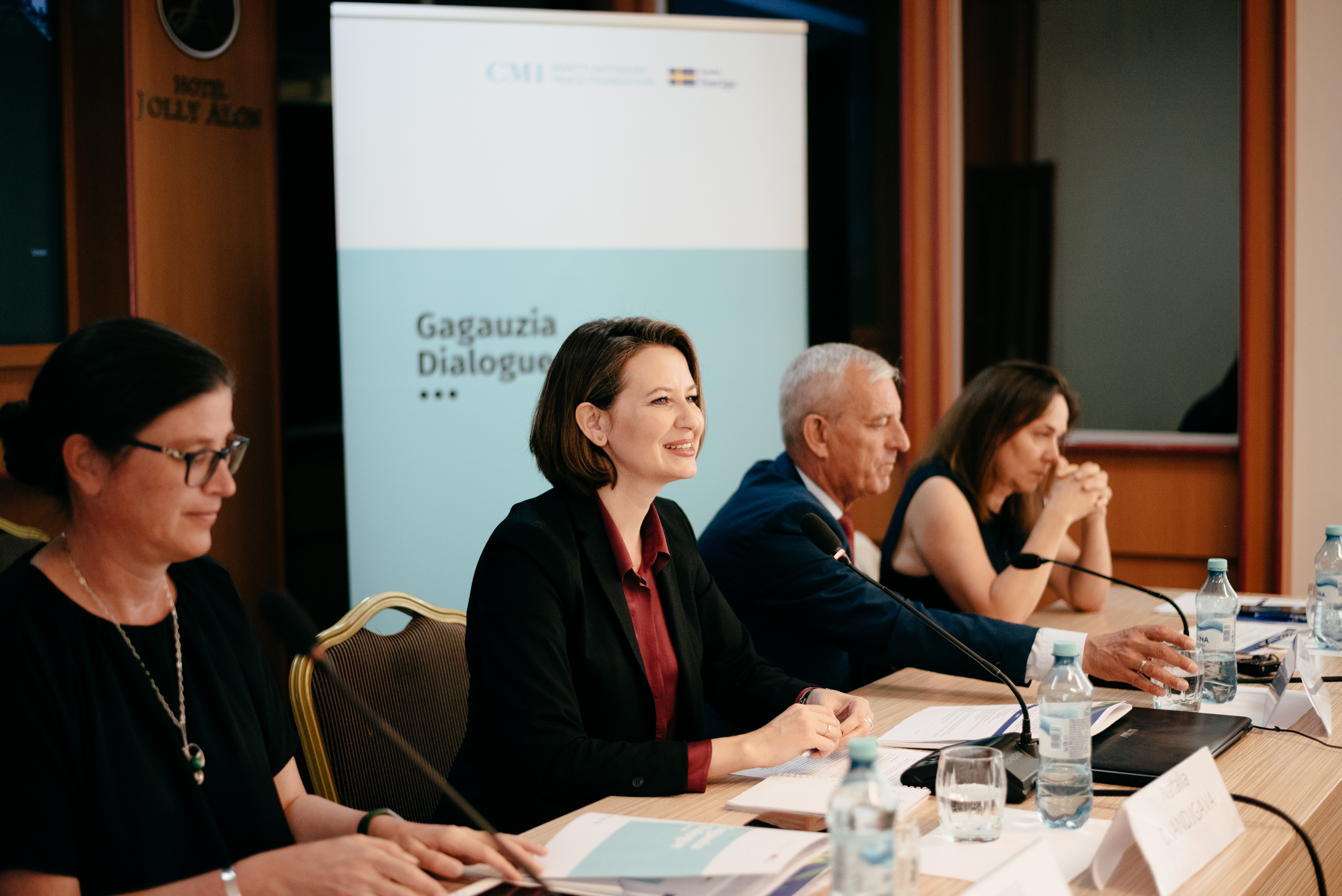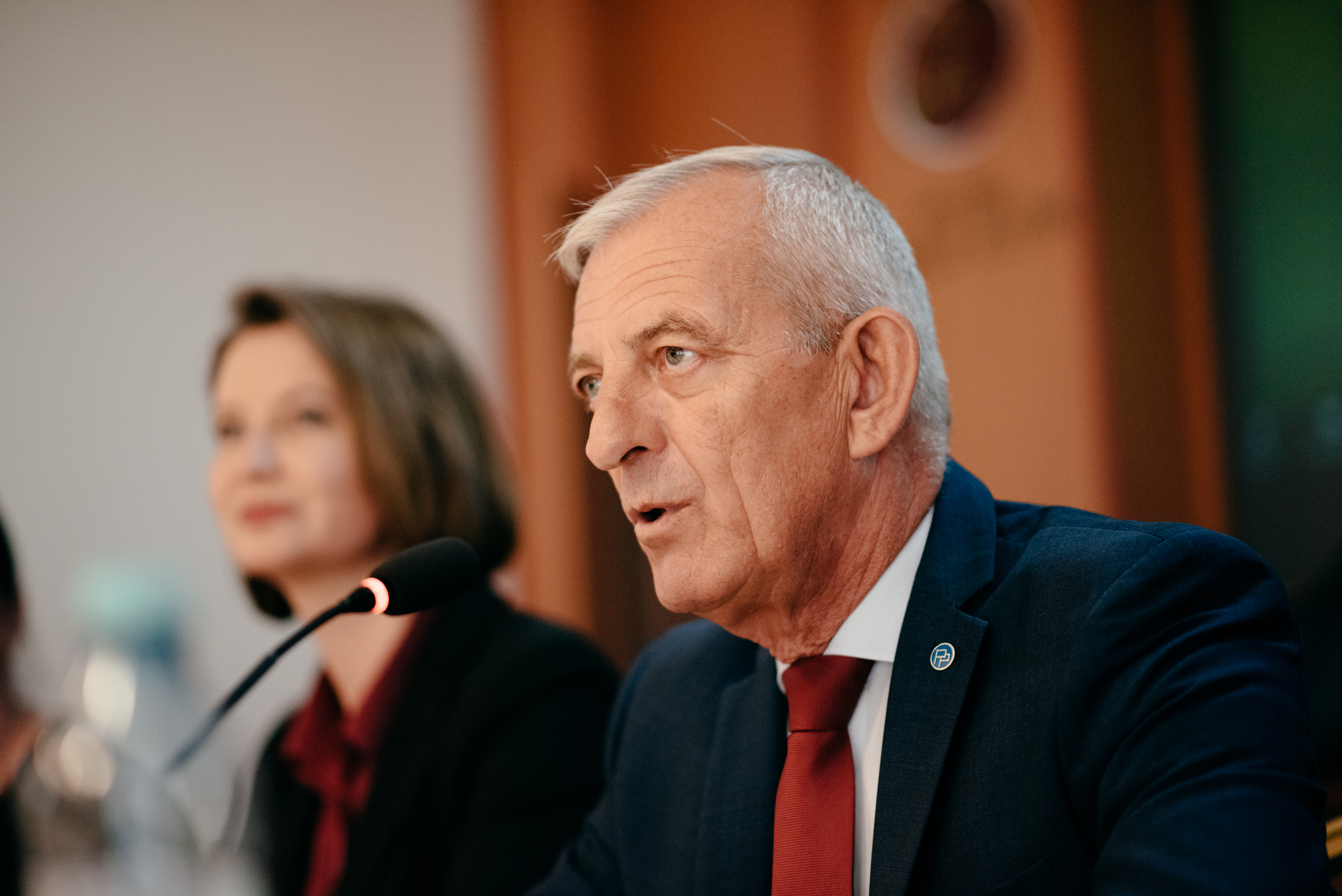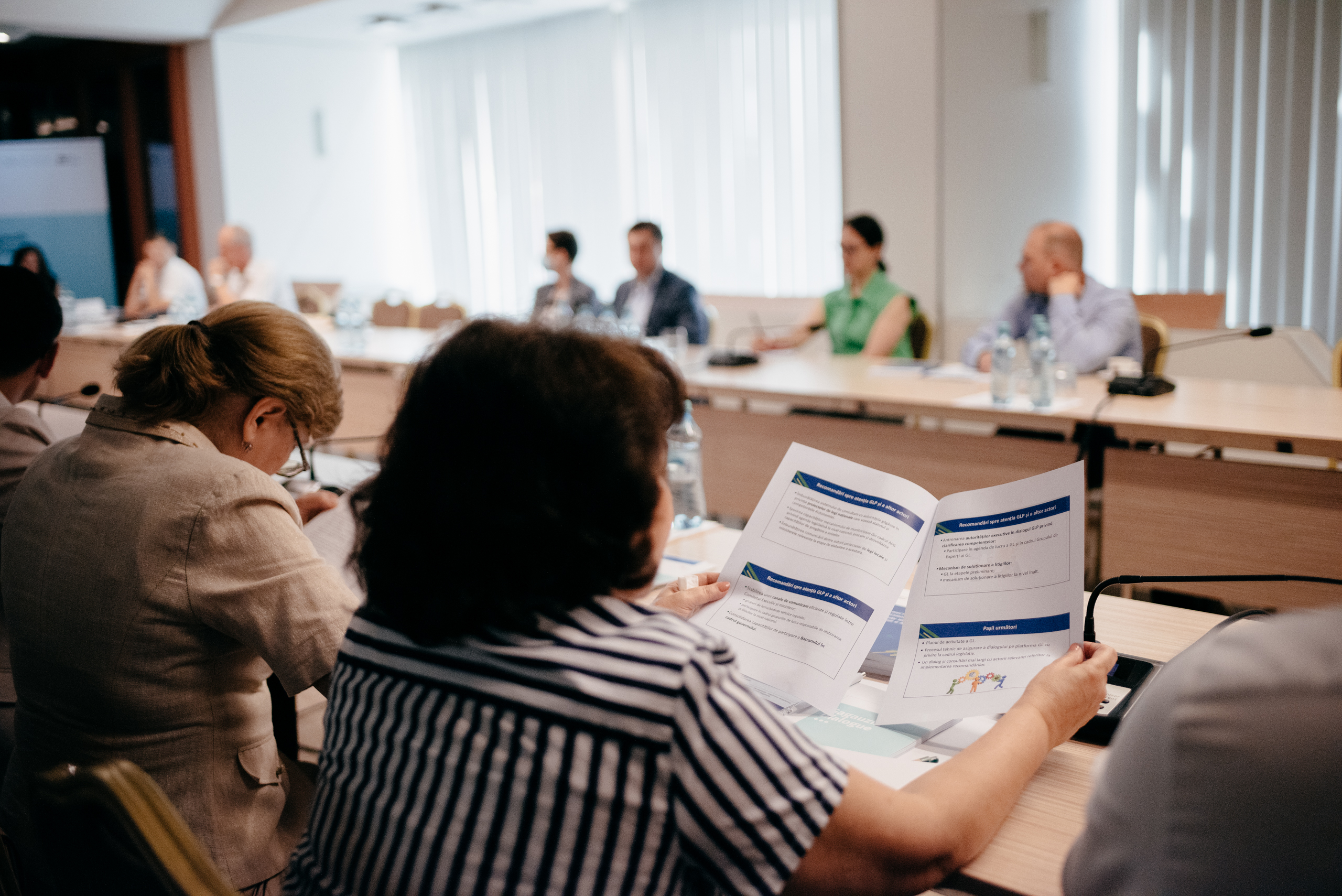Report: “Analysis of arrangements and institutional relations between central authorities and Gagauz autonomy”
Mechanisms and institutional relations between central authorities and the Gagauz Autonomy were discussed by the expert community and development partners.

Picture: Mihail Calarasan
Cooperation and coordination mechanisms between the central bodies and the Gagauz autonomy as well as a series of recommendations for their improvement were discussed on July 1, 2022, by the community of experts and development partners at the presentation of the report “Analysis of arrangements and institutional relations between central authorities and Gagauz autonomy”.
The report was developed by the CMI – Martti Ahtisaari Peace Foundation in the framework of the project “Gagauzia Dialogue” with the support of Sweden.
“We welcome the presentation of the report that serves the purpose of better informing both the national and international community on centre-autonomy mechanisms. In my view, the strengthening of our democracies by discussing different perspectives, advocating for relevant solutions, and developing the country with respect to all people’s needs and rights, is the only sustainable way forward. I hope both the Parliament and the People’s Assembly, based on the findings and recommendations of the report will invest in transforming this dialogue into a permanent platform and will dedicate both necessary resources and engagement to this end” stated Katarina Fried, Ambassador of Sweden to Moldova.
The publication analyses the procedures and mechanisms for institutional relations between the centre and autonomy and highlights areas for the discussion on the effectiveness of autonomy arrangements for consideration of the Parliamentary Working Group on Gagauzia (PWG). The report is also the first comprehensive document that could serve political, academic, civil society and public administration stakeholders to better understand the autonomy and its place within the political system of the Republic of Moldova.
“We are aware of the work that has gone into this study, which is very important for the Republic of Moldova. Today, our country is caught up in internal, regional and geopolitical challenges. There are many challenges on the autonomy dimension but I am sure that they will have a positive outcome and we will develop functional autonomy on the territory of the Republic of Moldova, we will become a good example of a state where dialogue, discussion and consensus are always found, through political and diplomatic channels. The Republic of Moldova is a unitary state on its way to the EU, and it requires a lot of multidimensional work. We need the support of international organisations, development partners on addressing inter-ethnic dimensions through intercultural, scientific, promotion and national integration programmes, in order to eventually become a strong state, with a functional autonomy on its territory”, declared the co-chair of the PWG from the Parliament, Mr Vladimir Bolea.

Picture: Mihail Calarasan
CMI’s Country Manager, Steve Young emphasised: “This report is unique and this was the first such report produced in 25 years that addressed issues related to the mechanisms of functioning of the autonomy and would serve as a base document for the future development of institutional relations between the centre and the autonomy”.
During the event, the authors of the report, Zdenka Machnyikova and Ion Beschieru, CMI experts, presented the report, which examines the current setup for the involvement of autonomy in the decision-making processes at the national level, the interactions of self-governance bodies within the autonomy territory, state oversight and dispute resolution mechanisms, as well as the dialogue platform between the centre and the autonomy.
The report contains recommendations, including the need for capacity building in several areas in order to effectively perform the existing functions and competencies of the autonomy. At the same time, the publication highlights the fact that the existing arrangements on relations between the centre and the autonomy provide the necessary basic elements for the functioning of the Gagauz autonomy in the framework of the political system of the Republic of Moldova, and that further implementation of arrangements and the status of the autonomy requires clarification of competences. In this regard, the PWG represents an important permanent platform for advancing the process of clarification of competencies and addressing other topical issues arising in the relations between the centre and the autonomy, said the experts.

Picture: Mihail Calarasan
The report is the result of the wide participatory process of authorities from Chisinau and Comrat, civil society, as well as consultation with international academic institutions to look into the comparative practice of state intergovernmental relations.
“Autonomy is a good governance instrument that deals with territorial and societal pluralism, in the presence but also in the absence of ethnic relations. Therefore, each autonomy is different. Institutional design matters. So do political culture and society. In the main, for autonomy to work well, procedural guarantees for the implementation, adaptation and amendment of the autonomy arrangements are a fundamental part of any such system”, mentioned Ms Elisabeth Alber, senior researcher, Eurac Research, Bolzano, Italy.
The electronic version of the Report can be accessed here: https://gagauziadialogue.md/category/about-the-project/reports-and-downloads/
Watch a short video on the report:
Romanian Language: https://youtu.be/jIklaFbsyqU
Russian Language: https://youtu.be/B57I_VabWHs
The report was prepared by CMI with the support of Sweden, at the request of the Parliamentary Working Group on Gagauzia (PWG), created in 2015 with the aim of improving the functioning of Gagauz autonomy within the constitutional framework of the Republic of Moldova.